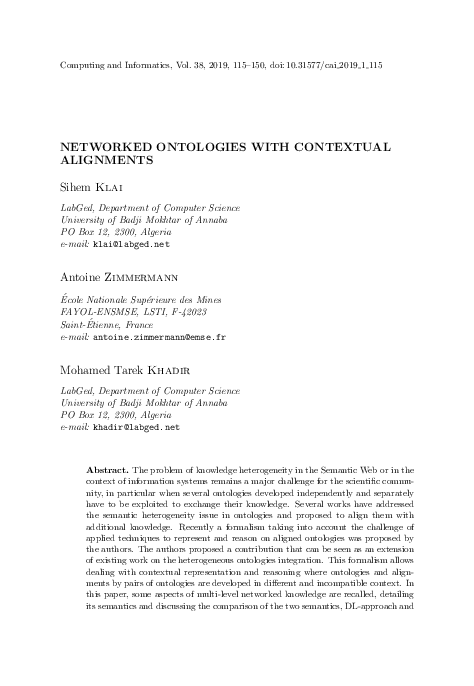Networked Ontologies with Contextual Alignments
keywords: Networked knowledge semantics, contextual ontologies, contextual alignments
The problem of knowledge heterogeneity in the Semantic Web or in the context of information systems remains a major challenge for the scientific community, in particular when several ontologies developed independently and separately have to be exploited to exchange their knowledge. Several works have addressed the semantic heterogeneity issue in ontologies and proposed to align them with additional knowledge. Recently a formalism taking into account the challenge of applied techniques to represent and reason on aligned ontologies was proposed by the authors. The authors proposed a contribution that can be seen as an extension of existing work on the heterogeneous ontologies integration. This formalism allows dealing with contextual representation and reasoning where ontologies and alignments by pairs of ontologies are developed in different and incompatible context. In this paper, some aspects of multi-level networked knowledge are recalled, detailing its semantics and discussing the comparison of the two semantics, DL-approach and DDL-approach, according to certain criteria, in order to measure their relevance and to give to readers a way to choose one semantics rather than another according to the context or the intended application.
reference: Vol. 38, 2019, No. 1, pp. 115–150


